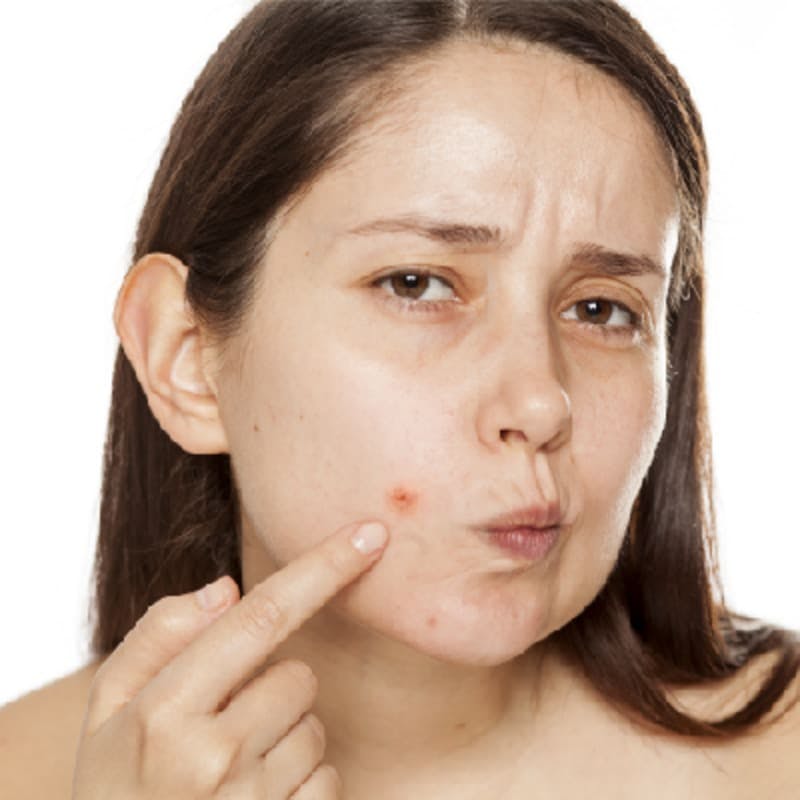Acne occurs when the pores in the skin become blocked with dead skin, bacteria or oil. Each pore is an opening to a follicle, made up of hair and an oil-producing gland called the sebaceous gland.
Written by Medical Professional
Can be Treated Online
Appointments Available Today
Written by
Dr Farah Gilani
Doctor
Reviewed by
Dr Faiza Khalid
Doctor
Last Updated:
Next Review: Sep 1, 2025
Guide contents
01What causes acne?
Articles related to Acne Causes
What causes acne?
Acne occurs when the pores in the skin become blocked with dead skin, bacteria or oil. Each pore is an opening to a follicle, made up of hair and an oil-producing gland called the sebaceous gland. These glands release oil (known as sebum), which travels up the hair, out of the pore and onto your skin. The oil helps keep your skin lubricated and soft.
When a problem occurs in this lubrication process, the pore becomes clogged and the oil is unable to escape. When this happens, spots form. There are a number of risk factors which increase the likelihood of this happening including diet, stress and hormones. If you are unsure of what causes acne, we can help with:
What is hormonal acne? And does stress cause acne?
This chapter covers
Why do I have acne?
Acne can be caused by:
- Excess oil production
- Hair follicles clogged by oil and dead skin cells
- Bacteria
- Excess activity of androgens, a specific group of hormones
What makes acne worse?
Four key factors can aggravate or trigger acne:
- Hormones. This can be triggered by puberty, pregnancy and the use of oral contraceptives
- Certain medications. These medications include drugs containing corticosteroids, testosterone or lithium
- Diet
- Stress
Where can you get acne?
Acne affects any part of the body where there are many sebaceous glands in the skin. The areas most commonly affected by acne are the face, back, chest, shoulders and upper arms. Though less frequent, acne can also affect the scalp and buttocks.
Is acne hormonal?
One of the common causes of acne is the fluctuations in your hormones. A rise in androgens, such as testosterone, can increase oil production and the risk of your pores becoming clogged. Though most common in teenagers during puberty, hormonal acne can also affect adults.
Acne face map: identifying the causes of your acne
According to Ayurvedic tradition, areas on our body reflect our inner health. However, there’s little to no scientific evidence that this is true. Many acne face maps suggest unproven links between where acne affects you and why. For instance, forehead acne does not equal liver disease, despite what you might read.
So, how does it work?
Book in seconds
Select a day and time that suits you — then see a doctor on your phone or at a pharmacy.
Speak to a doctor
Have a video consultation and be examined by one of our expert doctors.
Get back to feeling better
Whether it’s a diagnosis, personalised treatment plan or prescription — our doctors can help.
